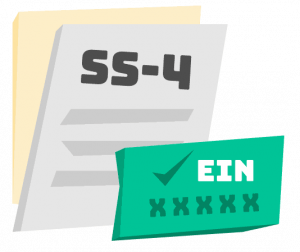How to Start a Corporation in Georgia
To start a corporation in Georgia, you must file Articles of Incorporation with the Georgia Corporations Division. You can file the document online or by mail. The Articles of Incorporation cost $105 to file (plus $55 to file your initial report). Once filed with the state, this document formally creates your Georgia corporation. However, to actually ready the corporation to do business, you must complete several additional steps.

1. Name Your Corporation
If you’re starting a new business, you probably already know what you want to name your corporation. But you’ll need to know if your preferred name is available. To find out, visit the Corporation Division’s Georgia Business Search and browse until you find the perfect name for your corporation. You should make sure the business name you want to use fits Georgia’s corporation name requirements, detailed in the Code of Georgia (GA Code § 14-2-401).
The company name you write on your Articles of Incorporation becomes your business’s legal name. Any other name your corporation uses to do business is an assumed business name, also sometimes called a “trade name” or “doing business as” name (DBA).
To use an assumed business name in Georgia, you’ll need to do the following:
- Register with the Clerk of the Superior Court in the county where your business is located.
- Publish a notice in your local newspaper.
Filing fees for registering DBAs vary depending on your county, as do publication fees.
The notice you publish must run for two consecutive weeks. After that, the newspaper should send you a Publisher’s Affidavit proving the notice was published. You don’t need to file the Publisher’s Affidavit in Georgia—just keep it with your business records.
Considering using an assumed business name? Learn How to Get a Georgia DBA.
No.

2. Designate a Registered Agent
Per GA Code § 14-2-501 (2019), every Georgia corporation must appoint a registered agent. You don’t need to hire a registered agent, but if you do, make sure your registered agent will list their address on your articles wherever possible to ensure maximum privacy.
At minimum, your Georgia registered agent will accept official documents on behalf of your business in Georgia and get them to you fast. They accept legal documents (service of process) and official mail at a Georgia location called a registered office. In other words, your registered agent’s address acts as the official place where any service of process and official mail for your Georgia LLC, Georgia corporation or Georgia nonprofit will be sent.
Yes, you can be your own registered agent in Georgia. However, after considering the registered agent requirements most business owners elect to hire a registered agent service instead. Why? Well although being your own registered agent will cost you $0, an Georgia registered agent’s name and address becomes part of the public record. Additionally, the registered agent is required to be available to accept service of process during normal business hours 5 days a week.
The only way to change your registered agent is to file an annual registration with the Georgia Secretary of State. It’s a simple process, but for more info, check out our guide on how to change your registered agent in Georgia.

3. Submit Articles of Incorporation
Learn more about each Articles of Incorporation requirement below.
Note that the information you provide becomes part of the public record—permanently.
You’ll need to include the following information on your Articles of Incorporation:
- Corporate Name. Your name must include “Corporation,” “Incorporated,” “Company,” “Limited,” or an abbreviation for one of these words. Tip: Many corporations opt to keep it simple with “Corp” or “Inc.”
- Authorized Shares. List the number of shares you’re creating. You must authorize at least one share. Tip: You can distribute some or all of these shares later on at your organizational meeting.
- Registered Agent. For your Georgia registered agent, you can list an individual state resident (like someone in your Georgia corporation) or a business that provides registered agent service (like Northwest). Tip: We recommend Northwest.
- Registered Office. This is the Georgia street address where your registered agent will be available during business hours to accept legal notifications for your corporation. Note that all information in your Articles of Incorporation will become part of the permanent record of your Georgia corporation. Tip: Hire Northwest and our address will go here instead of your own.
- Georgia Incorporator. Your incorporator is the person who signs and submits your Articles of Incorporation. Incorporators must include their name and address and state the capacity in which they’re signing (i.e. write “Incorporator” beneath the signature). Your incorporator doesn’t have to be a director, officer, or anyone in the corporation—just a legal adult you authorize to sign and submit your form. Tip: We’ll be your incorporator when you hire Northwest to form your Georgia corporation.
- Principal Office. This is where the state will send any mail (besides legal notifications). Tip: Want to keep it simple with one address for all your state and legal mail? Hire Northwest as your registered agent, and you can use our address as your principal office.
- Transmittal Form. If you’re filing paper articles, you’re also required to submit a Transmittal Information Form (CD 227) in addition to the articles and the filing fee. The Transmittal Information Form repeats some of the information on the articles. The form also makes you verify that you have sent (or are sending) a Notice of Intent to Incorporate to a local newspaper and requests a primary email address for your business. Tip: Want to keep your personal email address out of the public record? Hire Northwest to incorporate and use our email address – and let yours stay private.
It’s a fact that all the information provided in the Articles of Incorporation will become part of the public record. When your personal information is accessible by anyone, it opens your business up to hassles like junk mail.
To keep your information off the public record, you can hire a registered agent company—like us. We’ll list our address on this form so you don’t have to. Your personal addresses will stay off the public record and away from prying eyes.
You can file Georgia articles online, by mail or in person. Mailed or walk-in filings must be submitted to the following address:
Office of Secretary of State
Corporations Division
2 Martin Luther King Jr. Dr. SE
Suite 313 West Tower
Atlanta, GA 30334
Start Your Georgia Corporation Today!


4. Get an EIN
Your federal employer identification number (commonly known as an EIN or FEIN) is similar to a social security number for your business. The IRS assigns these numbers and uses them to easily identify individual corporations on tax filings, including federal corporate income tax returns.
The IRS requires corporations to get an EIN for their federal tax filings, and the Georgia Department of Revenue requires an EIN for their business registration. You may also be asked for your EIN when opening a bank account, securing a loan, or applying for local business permits and licenses.
You can get an EIN directly from the IRS. The application is free, and most businesses can apply online. However, if you don’t have a social security number, you’ll need to submit a paper application form. Can’t bear to fill out yet another application? Hire Northwest to get your EIN for you. Just add on EIN service during checkout when you sign up for our incorporation service.

5. Write Corporate Bylaws
Bylaws are the internal rules you set for your business. They put into writing how decisions will be made and who gets to make those decisions. All the major organizational processes and procedures for your corporation will go in your bylaws.
For more on Georgia Corporate Bylaws (including a free Georgia Corporate Bylaws template), see our Georgia Corporate Bylaws resource.
Yes. State code § 14-2-206 (2019) notes that initial bylaws must be be adopted. Bylaws can be established by the initial board of directors at an organizational meeting.
You don’t have to submit bylaws to the state though. Corporate bylaws are internal documents you keep with your other corporate records, such as meeting minutes and resolutions.
Corporate bylaws cover basic policies and procedures for issues such as company finances and management. Bylaws should cover a range of topics, answering key questions like those below:
-
Meetings: When and where will meetings for shareholders and directors be held? How many attendees are required to transact business? What are the procedures for voting or proxy voting? How do you call a special meeting? What actions can be taken without a meeting?
-
Stock: How are stock certificates issued and transferred? How is voting affected by issues such as corporate stock owners or fractional shares?
-
Directors and officers: How many directors must there be? Which officer positions are required? What powers do they have? How do you fill a vacancy or remove a director or officer?
-
Finances: What are the procedures for retaining profits, issuing dividends, and paying bills? Who can withdraw money from the corporate bank account or sign checks?
-
Records: Where is the corporate book to be kept? What information will be maintained? How are requests for review or access honored? Can records or copies be kept or distributed digitally?
-
Amendments and emergencies: Who can amend bylaws and how? Can emergency bylaws be adopted in the case of disaster?
Georgia bylaws can make other provisions as well, assuming additions are in accordance with state law. For example, GA Code § 14-2-627 (2019) states that Georgia bylaws can impose restrictions on the transfer of shares of a corporation.
Creating bylaws can be overwhelming—where do you start? Northwest can help. We give you free corporate bylaws when you hire us to form your Georgia corporation. We know what kinds of topics and questions corporations need to address, and we’ve spent years refining and improving our forms. We offer many other free corporate forms as well, including templates for resolutions and meeting minutes.

6. Hold an Organizational Meeting
An organizational meeting is the first official meeting of the corporation after the business is legally formed with the state. At this meeting, bylaws are adopted, officers are appointed, and any other initial business is conducted. The first meeting minutes should also be recorded and added to your corporate record book.
Meetings are held at the call of a majority of incorporators (or directors, if named in the articles), and aren’t required to be held in Georgia. Any initial business actions can be taken without an organizational meeting, if written or electronically-transmitted consent describes the action taken and is signed by each incorporator.

7. Open a Corporate Bank Account
Businesses that mix personal and business finances together risk losing their liability protections, so your corporation will need its own bank account. In addition, a corporate bank account is essential for easily accepting payments, paying bills and holding funds.
To open a corporate bank account in Georgia, you’ll need to bring the following with you to the bank:
-
A copy of the Georgia corporation’s Articles of Incorporation
-
The corporation’s bylaws
-
The corporation’s EIN
If your bylaws don’t specifically assign the power to open a bank account, you may also want to bring a corporate resolution to open a bank account. The resolution would state that the person going to the bank is authorized by the business to open the account in the name of the corporation. At Northwest, we provide free corporate bank resolutions, along with many other free corporate forms, to help you get started fast.

8. File Georgia Reports & Taxes
In Georgia, corporations file an Annual Registration (annual report) each year – and newly incorporated businesses must file an Initial Registration. In addition, the state has a corporate net income tax and a net worth tax.
Georgia requires an Initial Registration report to be submitted to the Secretary of State within 90 days of filing Articles of Incorporation. This report simply requires you to list three of your company’s principal officers.
The Georgia Annual Registration is a filing you must submit each year. This annual report is where you confirm and update information regarding the names and addresses of officers, your principal address, business email address, and registered agent’s name and address.
Both reports must be submitted with a $55 online filing fee ($60 for paper filings).
The filing is due by April 1st, but can be submitted as early as January. These filings can be easy to forget—which is why we send our clients automatic reminders. Or better yet, let us file for you. With our business renewal service, we can complete and submit your Georgia annual registration for you for $100 plus the state fee.
Georgia corporations have two more major taxes to contend with: a corporate net income tax and a net worth tax. The corporate income tax rate is a flat 5.75%. Note that S corps with nonresident shareholders can potentially get hit with the corporate income tax as well. S corps have to file form 600-CA on behalf of each nonresident shareholder. If these aren’t filed, the state will not recognize the S-corp election and will tax the business as a regular C-corp.
There is also a net worth tax, which affects businesses taxed as both C and S corporations. If you have more than $100K in capital stock, paid-in surplus and earned surplus, you’ll have to pay this tax, which starts at $125 and tops out at $5K. After incorporating in Georgia, corporations must file an initial return for the state’s net worth tax by the 15th day of the fourth month following incorporation. Even if no tax is owed, an initial filing is still required.
The Georgia sales tax is 4%. City, county and specialty sales taxes can be tacked on as well, making the average total sales tax 7.104%%.
Yes, if you conduct business in Georgia, you’re required to register with the Georgia Department of Revenue. You can register via the Georgia Tax Center. You’ll need your EIN before you can register.
Ready to Start a Corporation in Georgia?







